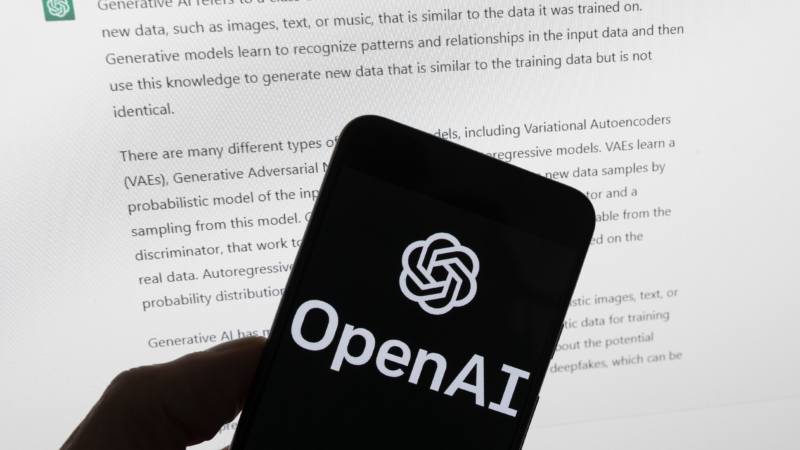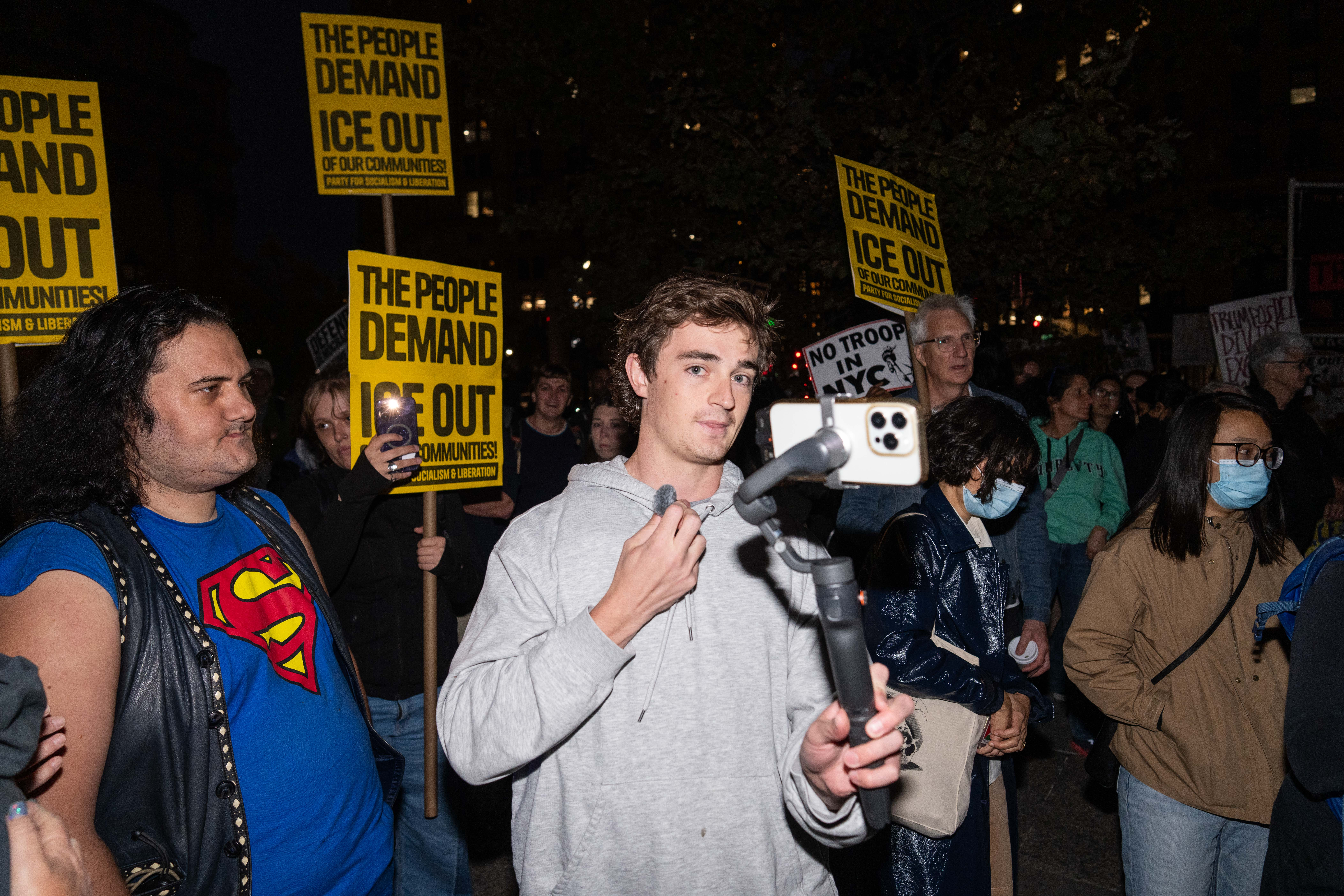Judge allows ‘New York Times’ copyright case against OpenAI to go forward
A federal judge on Wednesday rejected OpenAI’s request to toss out a copyright lawsuit from The New York Times that alleges that the tech company exploited the newspaper’s content without permission or payment.
In an order allowing the lawsuit to go forward, Judge Sidney Stein, of the Southern District of New York, narrowed the scope of the lawsuit but allowed the case’s main copyright infringement claims to go forward.
Stein did not immediately release an opinion but promised one would come “expeditiously.”
The decision is a victory for the newspaper, which has joined forces with other publishers, including The New York Daily News and the Center for Investigative Reporting, to challenge the way that OpenAI collected vast amounts of data from the web to train its popular artificial intelligence service, ChatGPT.
Attorney Steven Lieberman, who is on the legal team representing the news publishers, celebrated the judge’s ruling.
“We appreciate the opportunity to present a jury with the facts about how OpenAI and Microsoft are profiting wildly from stealing the original content of newspapers across the country,” Lieberman said in a statement to NPR.
Lawyers for The New York Times believe that the paper’s articles are one of the biggest sources of copyrighted text that OpenAI used to build ChatGPT into the premier AI chatbot, and they allege that OpenAI violated copyright laws in its siphoning of the newspaper’s journalism.
OpenAI did not immediately return a request for comment.
OpenAI leaders have argued that the company’s mass data scraping, including articles from The Times, is protected under a legal doctrine known as “fair use.”
It allows for material to be reused without permission in certain instances, including for research, teaching and commentary.
The judge’s ruling means that the suit can now proceed to trial, but a trial date has not been set. Evidence gathering, including depositions with executives on both sides of the case, are expected to happen confidentially, along with public pretrial hearings to settle disputes over evidence and other matters.
The legal fight between one of the world’s most influential news outlets and Silicon Valley’s leading AI company puts a lot on the line for both the news industry and the future of AI tools.
For publishers, the fear is that powerful chatbots that can quickly summarize news articles when queried will mean that readers visit news websites less often, prompting a drop in advertising that could affect the industry’s bottom line.
And while the suit only names OpenAI and its financial backer, Microsoft, other AI companies also scrape the web for content to train their models. For the most part, the AI industry has followed OpenAI’s lead when it comes to training chatbot and other AI services, operating under the premise that processing data found on the open web into chatbot answers is legally protected by copyright law.
But the law remains unsettled on the matter.
Courts have said fair use of a copyrighted work must generate something new that is “transformative,” or comments on or refers back to an original work. The Times argues that this does not apply to how OpenAI reproduces the paper’s original reporting.
Another part of the legal analysis will involve an idea known as “market substitution,” referring to whether chatbot answers are a substitute for, say, reading The Times website, or if chatbots and newspapers operate in different marketplaces.
In a hearing in New York in January, lawyers for the publishers argued that when ChatGPT was asked questions about subjects covered by The Times, the chatbot regurgitated articles verbatim.
Yet OpenAI’s legal team shot back that the news outlets appeared to have specifically manipulated prompts to essentially force the chatbot to spit out large chunks lifted from the paper’s website. This is not how most people interact with the service, nor how the chatbot is designed to operate, said Joseph Gratz, a lawyer for OpenAI.
“This isn’t a document retrieval system. It is a large language mode,” Gratz said.
What to know about Nick Shirley, the YouTuber alleging daycare fraud in Minnesota
Shirley is a 23-year-old self-described "independent YouTube journalist" who made prank videos in high school before pivoting to politics. He participated in a White House roundtable in October.
Greetings from Vienna, where an imperial palace hosts a holiday market for all
Far-Flung Postcards is a weekly series in which NPR's international team shares moments from their lives and work around the world.
Out with the mayo: How Ukrainians reclaim holiday food
For many people from former Soviet countries, New Year's is a big holiday feast time. A Ukrainian restaurant in Washington gives NPR a taste of what's on the menu.
His brother’s mental illness isolated his family. Now he’s helping other caregivers
When it comes to serious mental illness, family caregivers are crucial partners. But often, they must fend for themselves. A new solution offers them support.
Farmers are about to pay a lot more for health insurance
Tariffs, inflation, and other federal policies have battered U.S. farmers' bottom lines. Now many farmers say the expiration of federal health care subsidies will make their coverage unaffordable.
50 wonderful things from 2025
Each year, critic Linda Holmes looks back on the year and compiles a list of the things that brought her joy.







